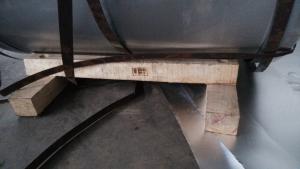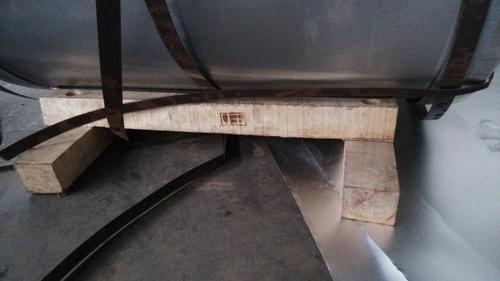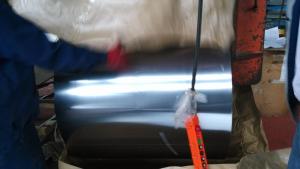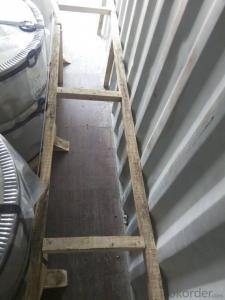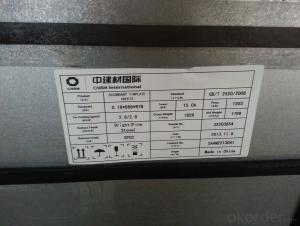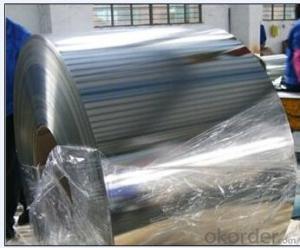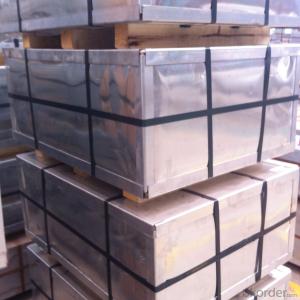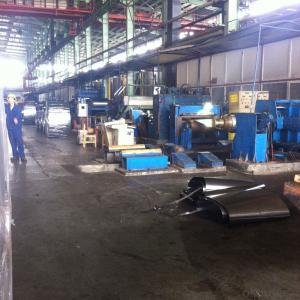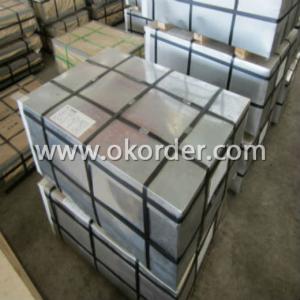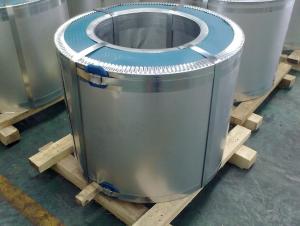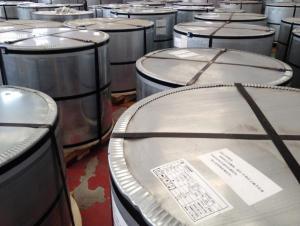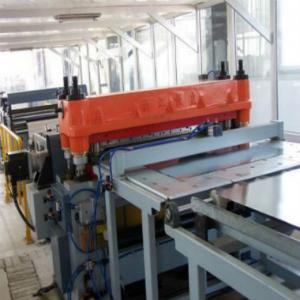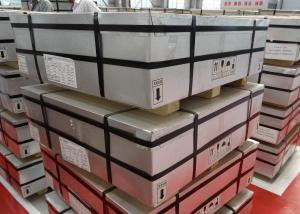TFS SPCC/MR for Food Cans in Metal Packaging
- Loading Port:
- China main port
- Payment Terms:
- TT OR LC
- Min Order Qty:
- 25 m.t
- Supply Capability:
- 30000 m.t/month
OKorder Service Pledge
OKorder Financial Service
You Might Also Like
1. Products: Tin Free Steel
Tinplate and TFS are widely used for making all types of containers such as artistic cans, tea cans, painting cans, chemical package cans and metal printing etc. Its applications are not limited to containers; recently, they have also been used for making electrical machinery parts and many other products.
2. Specification:
Our goods enjoyed high quality both at home and abroad. We can supply tin free steel as follows:
Technical standard | JISG3315 and GB/T24180 - 2009 (BS EN 10202:1990) |
Steel Type | MR / SPCC |
Thickness | From 0.15mm to 0.50mm (Tolerance +/- 0.01mm) |
Width | Normally 600-1050mm (Tolerance +3/-0 mm) |
Coating | Total chromium min 30mg/m2 max 140mg/m2 |
Temper & Annealing | T1-T5, DR7-8, TS230-TH435, T49-T65(+/- 4) |
Surface Treatment | Bright & Fine Stone & Stone & Silver & Matt |
Payment terms | Letter of Credit (L/C), Telegraphic transfer (T/T) |
Price terms | CFR & CIF price term |
Delivery time | Within 60 days after received L/C or T/T down payment |
Packing | High quality shipping packing which contains thin plastic film, rust-proof paper, metal cover, metal angles and strap sand pallet. |
Minimum order Quantity(MOQ) | 25 metric tons (1X 20'' container) |
3. Pictures:
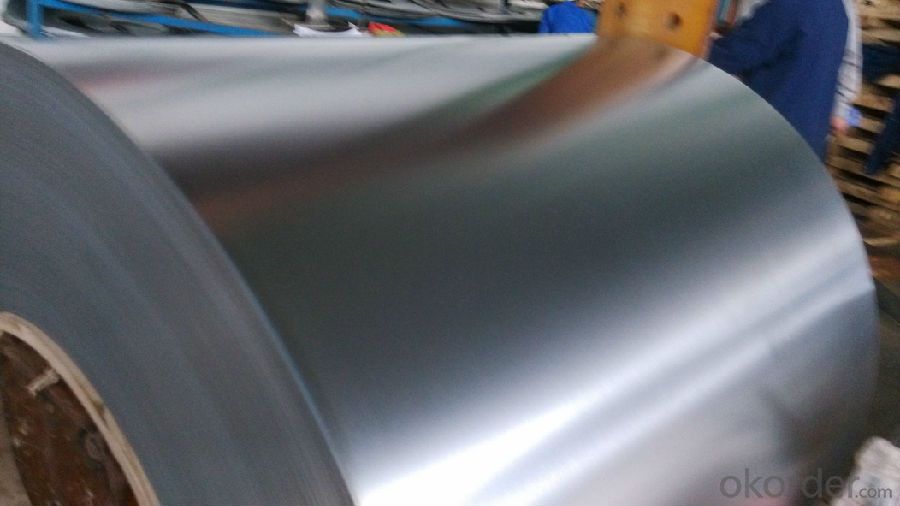
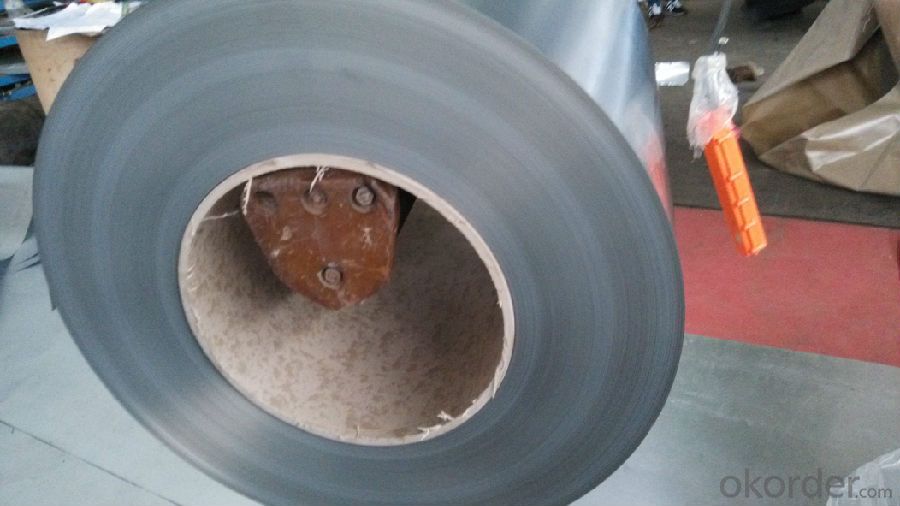
4. Features of the factory price/ tin free steel/tinplate/tfs/tmbp/etp/spte:
Beautiful Appearance
Excellent Paintability & Printability
Excellent Formability & Strength
Excellent Corrosion Resistance
Excellent Solderability & Weldability
5. FAQ:
We are one of the main producers in China for tinplate, tin free steel and also TMBP. At present, our productivity is more than 450000 MT/year.
For more information about our products or company, pls contact us freely.
- Q: How is tinplate recycled and what are the benefits of recycling?
- Tinplate is commonly recycled through a process called "tin can recycling." In this process, tin cans are collected, sorted, and then shredded into small pieces. The shredded tinplate is then melted down to remove any impurities, and the molten metal is poured into molds to create new tinplate products. The benefits of recycling tinplate are numerous. Firstly, recycling tinplate helps conserve natural resources as it reduces the need for mining and extraction of new raw materials. Additionally, recycling tinplate reduces energy consumption and greenhouse gas emissions compared to producing tinplate from scratch. Moreover, recycling tinplate reduces the burden on landfill sites, as tin cans can take years to decompose. Finally, recycling tinplate helps create job opportunities in the recycling industry, contributing to the economy. Overall, tinplate recycling is an eco-friendly and sustainable solution that brings multiple environmental and economic benefits.
- Q: How does tinplate contribute to the durability of stationery products?
- Tinplate contributes to the durability of stationery products by providing a protective and corrosion-resistant coating. This coating helps prevent rust and damage from moisture, ensuring that the stationery items remain in good condition for a longer period of time. Additionally, tinplate's strength and rigidity enhance the overall durability of stationery products, making them less prone to bending, crushing, or breaking during use or transportation.
- Q: How is tinplate coated for chemical storage containers?
- Tinplate is typically coated for chemical storage containers using a process called electrolytic tin plating, where a layer of tin is electrochemically deposited onto the surface of the steel substrate. This tin coating helps to protect the container from corrosion and chemical reactions, ensuring safe storage and transportation of chemicals.
- Q: How is tinplate formed into different shapes?
- Tinplate is formed into different shapes through a process called metal forming, which involves techniques like stamping, deep drawing, and folding. This is done by placing the tinplate sheet into a specialized machine that uses pressure, heat, and/or molds to shape the metal into the desired form.
- Q: Can tinplate packaging be used for frozen or refrigerated goods?
- Yes, tinplate packaging can be used for frozen or refrigerated goods. Tinplate is a durable material that provides excellent protection against moisture and temperature changes, making it suitable for storing and transporting perishable items. It helps to maintain the freshness and quality of frozen or refrigerated goods, making it a popular choice in the food industry.
- Q: What are the advantages of using tinplate for household appliances?
- There are several advantages of using tinplate for household appliances. Firstly, tinplate provides excellent corrosion resistance, which helps to protect appliances from rusting and prolongs their lifespan. Secondly, tinplate is lightweight yet strong, allowing for easy handling and transportation of appliances. Additionally, tinplate has a smooth and glossy surface, making it aesthetically pleasing and easy to clean. Lastly, tinplate is a sustainable and recyclable material, promoting environmental sustainability in the production and disposal of household appliances.
- Q: Can tinplate be used for agricultural applications?
- Yes, tinplate can be used for agricultural applications. It is commonly used for the packaging of agricultural products such as canned food, seeds, and agricultural chemicals. Tinplate offers protection against moisture, pests, and contamination, making it suitable for preserving and transporting agricultural goods. Additionally, its durability and resistance to corrosion make it a reliable choice for various agricultural uses.
- Q: Can tinplate be recycled with other metals?
- Yes, tinplate can be recycled with other metals. Tinplate is typically made from steel coated with a thin layer of tin, and both steel and tin can be recycled. When tinplate is recycled, it is usually separated from other materials and processed separately to recover the steel and tin content.
- Q: Can tinplate be used for coffee or tea packaging?
- Yes, tinplate can be used for coffee or tea packaging. Tinplate is a commonly used material for such packaging due to its durability, ability to maintain product freshness, and resistance to moisture and oxygen. Additionally, tinplate offers excellent printing capabilities, making it an ideal choice for branding and product information display.
- Q: Tinplate why have white and yellow, tin plating should be white ah, yellow is how to return a responsibility?
- Tinplate itself is no color, it is iron color.
Send your message to us
TFS SPCC/MR for Food Cans in Metal Packaging
- Loading Port:
- China main port
- Payment Terms:
- TT OR LC
- Min Order Qty:
- 25 m.t
- Supply Capability:
- 30000 m.t/month
OKorder Service Pledge
OKorder Financial Service
Similar products
Hot products
Hot Searches
Related keywords
